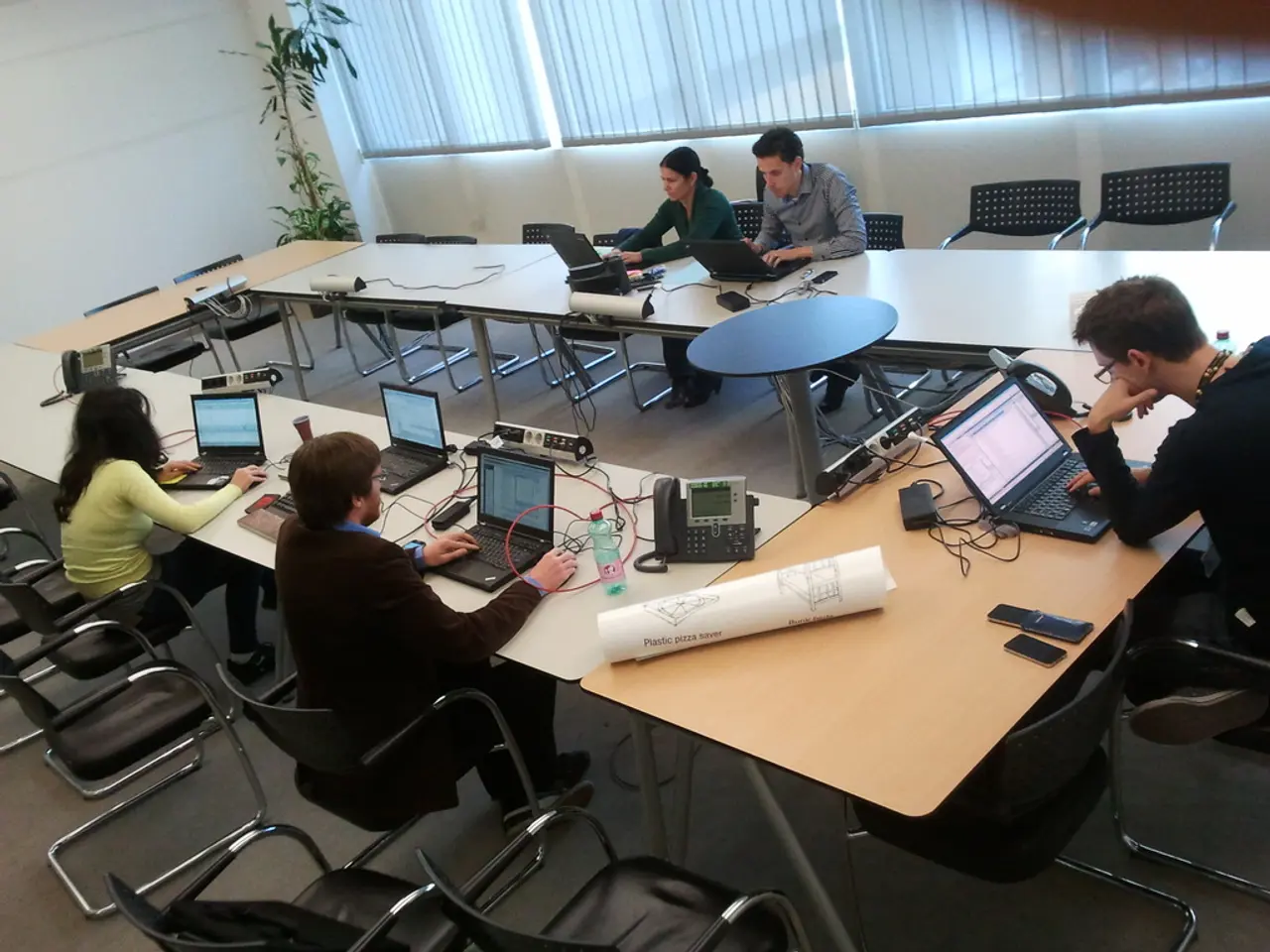Continuing hybrid work boosts productivity, yet places stress on both employees and supervisors, claims study by the ADECCO Group.
The leading HR solutions company, our group, has released the findings of its most comprehensive global study, "Resetting Normal: Defining the New Era of Work." The report, which covers 25 countries and 15,000 office-based respondents worldwide, highlights significant shifts in working practices and attitudes triggered by the COVID-19 pandemic.
More than three quarters of workers desire flexibility over their own schedules, and two-thirds are confident that companies will start significant hiring again. However, only half of all workers say their managers have met or exceeded expectations for supporting work-life balance.
The study underscores the challenges and solutions related to hybrid work models, productivity, leadership, and mental health. Hybrid work models, where at least half of work is remote, are preferred by 53% of global workers, with 41% considering moving to jobs with more flexible working options.
Hybrid work, if not managed carefully, can negatively impact productivity. Clear structures, expectations, and leadership approaches that reconcile remote and in-person work are needed to avoid performance decline. Organizations are advised to focus on fixing collaboration problems and reinforcing culture, even while maintaining some remote or hybrid arrangements.
Leadership in hybrid contexts must adapt by fostering stronger connections, monitoring employee well-being, and creating environments where hybrid teams can thrive both socially and operationally. Leaders should emphasize communication and culture-building explicitly.
Mental health concerns arise from hybrid work’s social isolation effects. Companies should incorporate strategies to reduce loneliness, promote employee well-being, and provide mental health resources to support a more engaged and healthier workforce.
The predicted 'great resignation' is not yet evident, but the time is now for organizations to reconnect with their workforce. Security, agency, culture, wellbeing, and development are most important aspects of employment for the future.
The report also highlights poor mental health as a rapidly emerging issue, with more than half of young leaders suffering from burnout. Long working hours have increased by 14% in the last year, and less than half are satisfied with career prospects at their company. Only half of all workers say their managers met or exceeded expectations for encouraging a good working culture, and satisfaction with leadership is low, with only a third of non-managers feeling they are getting due recognition within the business.
However, there is a silver lining. More than 71% of workers now have a set-up at home that allows effective remote work. The study's key findings and recommendations emphasize the need for intentional redesign of hybrid models, leadership methods, and mental health support to enhance productivity and employee experience.
Sources:
[1] The Harvard Business Review article aligns closely with the study’s themes. [4][3] Specific recommendations related to upskilling or career goal resetting from the "Resetting Normal" study may be addressed elsewhere or require separate inquiry.
- The future of work reflects a significant shift towards hybrid models, as 53% of global workers prefer at least half of their work to be remote.
- To avoid productivity decline in hybrid work environments, organizations need to establish clear structures, expectations, and leadership approaches that reconcile remote and in-person work.
- Leadership in hybrid contexts should foster stronger connections, monitor employee well-being, and create environments where hybrid teams can thrive both socially and operationally.
- Mental health concerns are arising from the social isolation effects of hybrid work, and companies should incorporate strategies to reduce loneliness, promote employee well-being, and provide mental health resources to support their workforce.




